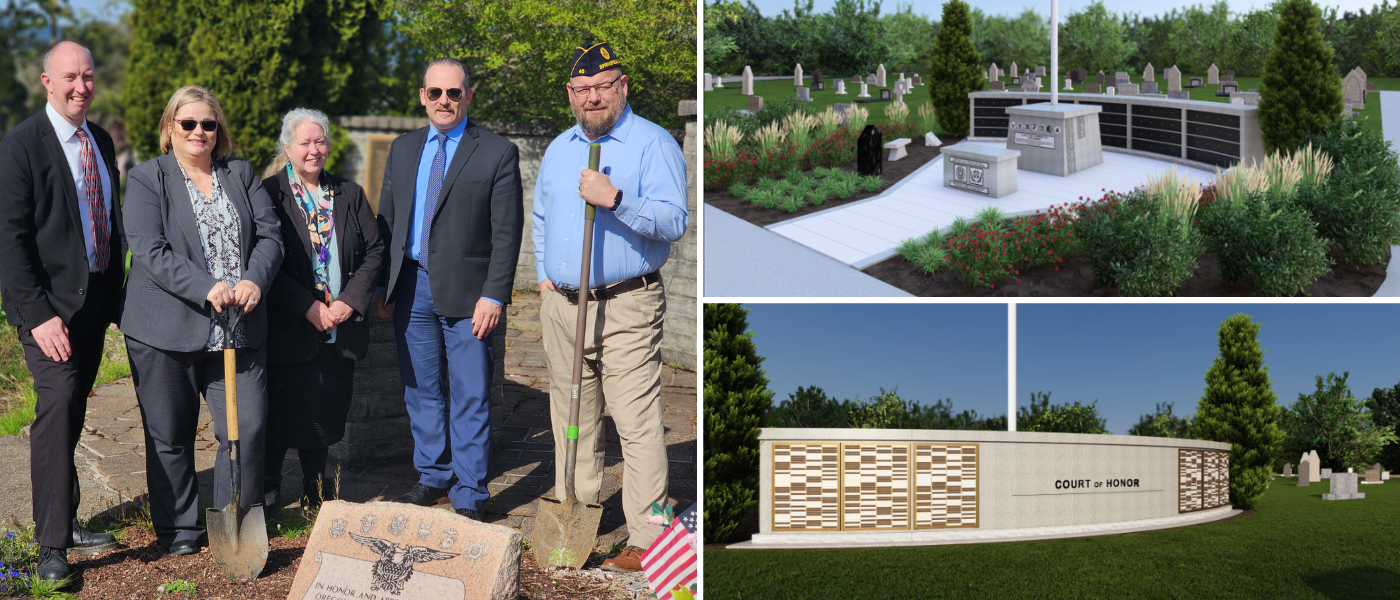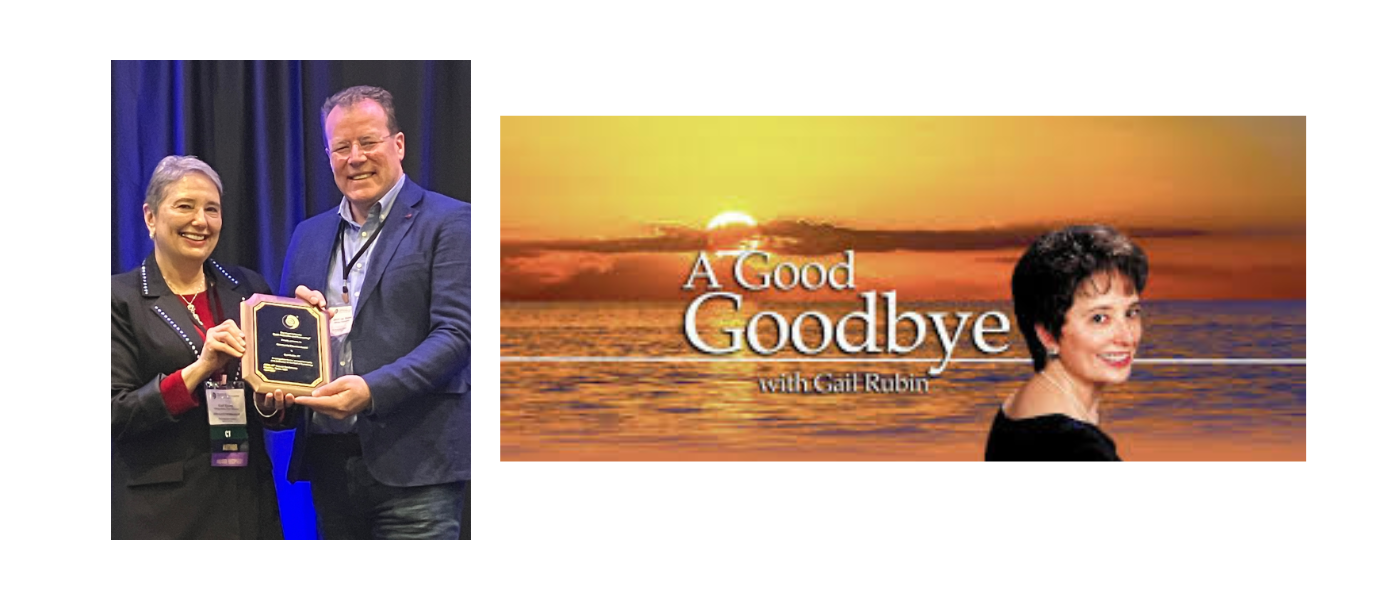Do Funerals Even Matter?
Article originally published by: Order of the Golden Rule
This article originally appeared in the Spring 2016 issue of OGR’s Independent magazine. Many thanks to Alan D. Wolfelt, Ph.D. for sharing his insights into the why of funeral service.
If you are reading this article, you are probably aware of a significant truth:
Many people are questioning the value of and the need for funerals!
If there was ever a time to be reminded of WHY you do what you do related to creating meaningful funeral experiences for those you serve, it is RIGHT NOW!
Why are People Questioning the Need for Funerals?
Today’s families are questioning the need for funerals because they are not accustomed to making funeral arrangements and haven’t attended many services. They have fewer ties to tradition, and when a death occurs, tend to think in terms of a “celebration” or a “party.” And many confuse efficiency with effectiveness and try to move away from any feelings of grief by saying, “It will be easier if…”
Often, not understanding the value of various elements of ceremony (visitations, music, readings, eulogy, symbols, procession, committal, reception), they choose to eliminate them. Unfortunately, not understanding the WHY, or the value of the elements, they chip away at them (or do not have any of them; i.e., have a direct disposition) and run the risk of missing the “sweet spot” of a meaningful funeral experience.
As T.S. Elliott observed, “You can have an experience and miss the meaning.”
Shouldn’t You Just Do What Families Want You to Do?
I was recently visiting with a funeral director who had arranged a direct cremation, with no service, for a family in his community. When I asked him what education he had provided them about the importance of a funeral, he said, “Well, shouldn’t I have just done what they asked?”
My answer, both to him and to you, is an emphatic “NO!”
As you well know, there is a vital need for those of you who recognize the value of meaningful funeral experiences to serve as educators about that value. As author Thomas Long recently observed, “As a society, North Americans are no longer sure what to do with their dead.” Yes, many people, through no fault of their own, have never learned that “when words are inadequate, have ceremony.”
Yes, today’s families have created some challenges for those of you in the role of “gatekeeper of funeral ceremony.” More and more people are saying variations on the following:
“When I die, just get rid of me… no muss, no fuss. Maybe you can throw a party, but I sure don’t want a funeral!”
“Dad said he didn’t want us to go to any trouble… so we are just going to do what he said.”
“We just thought it would be easier, faster, and cheaper.”
A funeral director’s role is not just to do what the family wants.
With so many people lacking an understanding of the WHY of meaningful funerals, I will be very direct—
You cannot believe your role is to “just do what they want.”
No, you cannot and will not change the mind of every family you serve, but if you don’t believe that your role is to EDUCATE families about the value of what you can provide, you should seriously question your future in funeral service.
The Difference between Decisions and Choices
When I talked to a funeral director recently, I learned a critical distinction between the words “decisions” and “choices.” Here’s a snippet of our conversation:
Me: “What do you think is the most important thing you do for families when you are trying to help them create a meaningful funeral experience?”
Funeral Director: “The most important thing I do is help families make decisions.”
That sounds reasonable, doesn’t it? But as I thought more about it later, I realized that helping families make decisions doesn’t necessarily result in a meaningful funeral experience.
The funeral director’s true role is to help families make informed choices.
Instead, the funeral director’s true role is to help families make informed choices.
You see, decisions are made with limited information. An example of a decision families are often asked to make is, “Would you like to have a visitation?” The answer to this question is yes or no, black or white.
But if you are helping families make choices, you first educate them about, well, each of their choices.
Instead of asking, “Would you like to have a visitation?,” you might say:
“The first part of the funeral experience is often the visitation. It’s a time for friends and family to gather before the funeral itself and gives people a chance to greet one another and talk before the more structured ceremony begins. If you think about it, it’s kind of a courtesy time—a reception, if you will, because your friends and family members, especially those you don’t see every day or who may be traveling from out of town, appreciate having some time to offer their condolences and kind of “get oriented” before plunging into the ceremony.
If the body is present at the visitation, this time also really helps everyone acknowledge the reality of the death and gives them a chance to say hello on the pathway to goodbye.
We can make the visitation personalized by playing favorite music in the background and helping you put together a display of photos or a video or a memorabilia table as well.”
The more information a family is given about each of the elements of ceremony, the more their decisions become true choices.
The more information a family is given about each of the elements of ceremony, the more their decisions become true choices.
So, to reiterate, as you bring up each element of the funeral, you first educate about the purposes of that element, how that element fits into the whole funeral experience, and what some ways are to personalize that element. Then and only then is the family equipped to make an informed choice about whether or not to include that element in the unique funeral they are planning.
But First, WHY are You in Funeral Service?
However, before you can create a COURSE OF ACTION to educate families and improve your funeral home’s service model, you must have a CAUSE OF ACTION!
To be able to achieve a strategic CAUSE OF ACTION, your funeral home must place the focus on the reasons WHY we have funerals in the first place.
In other words, you must first ask WHY you need to help teach the WHYs of funerals. As author and organizational consultant Simon Sinek has noted, “People don’t care about WHAT you do, they care about WHY you do it.”
The reality is that we can all achieve so much more if we start everything we do by asking WHY related to any product, service, or experience we provide. What you do (create meaningful funerals) simply serves as the proof of what you believe.
Why does your funeral home exist? Why do you personally choose to work in funeral service? Who are your customers today? What are their expectations, needs, and wants? These are the essential questions you and your team must ask and answer before you can develop a plan to educate the families you serve and your community about the importance of funerals.
As author and thought leader Simon Sinek astutely noted, “It is when a WHY gets fuzzy that it becomes much more difficult to maintain growth, loyalty, and the inspiration that helped drive the original success.”
If your WHYs are fuzzy, your funeral home is almost certainly not realizing its potential. I understand that for an organization that may have been in business for decades, re-examining WHY you still exist today (not why you were founded long ago) can seem like a difficult or even pointless exercise. But I assure you, it is absolutely necessary in today’s funeral-avoiding culture.
You see, if you are not already, you must begin to educate the families you serve about why we have funerals and how each of the elements of the funeral serves an important purpose. But how can you genuinely educate themabout the WHYs if you do not first ask yourself why?
The essence of helping those you serve make a transformation is about helping them make decisions that are good for them.
In all cases, returning to the original purpose, cause, belief, or intent—the WHY—is what has the potential to create TRANSFORMATIONS! Transformations are the effectual outcomes that guide those you serve to change some dimension of self.
In other words, the essence of helping those you serve make a transformation is about helping them make decisions that are good for them.
So, if you genuinely believe (and I sure hope you do!) in the value of a meaningful funeral, you are often faced with attempting to help families you serve make choices that are good for them.
Alan D. Wolfelt, Ph.D., is a respected author, educator, and consultant to funeral service. He advocates for the value of meaningful funeral experiences in his death education workshops across North America each year. This article is excerpted from his workbook for funeral home staffs entitled “Educating the Families You Serve about the WHY of the Funeral.” He conducts a training program each June for funeral directors on this topic in Fort Collins, Colorado. For more information, call the Center for Loss at 970.226.6050, visithttp://www.centerforloss.com, or e-mail Dr. Wolfelt directly at drwolfelt@centerforloss.com.




